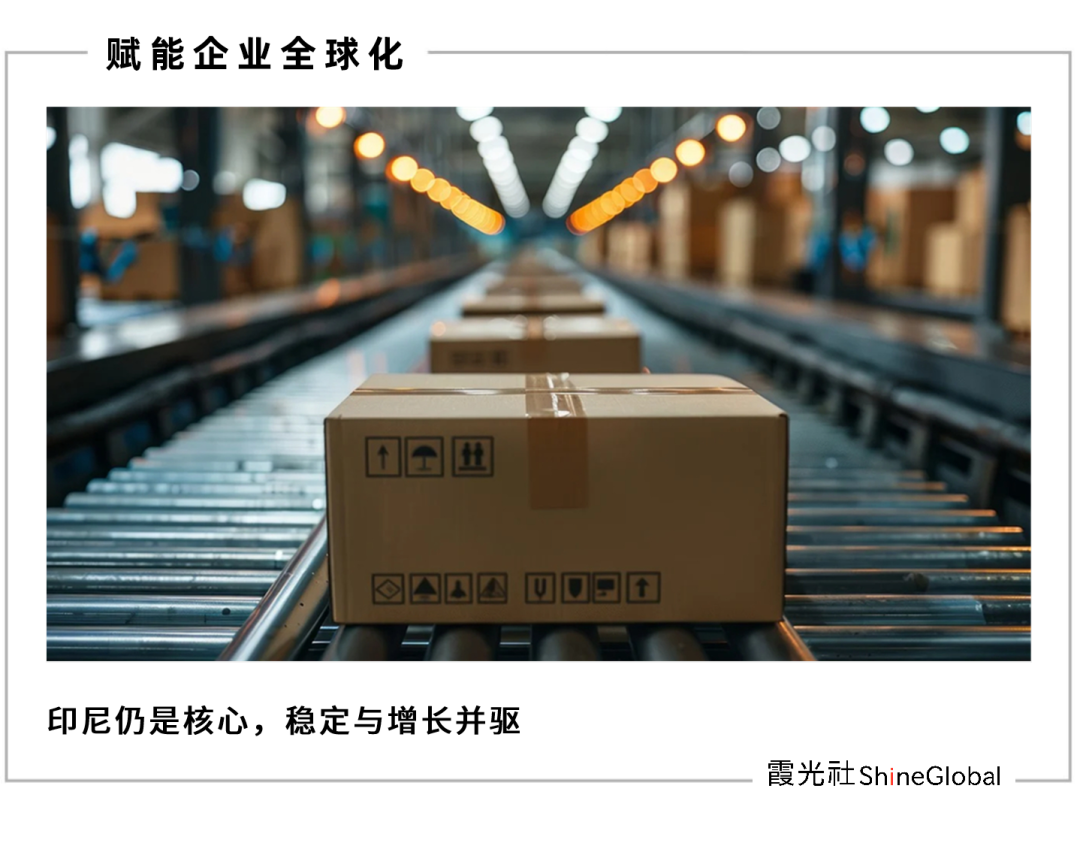Southeast Asian e-commerce: platforms achieve profitability, what will drive future growth?
![]() 09/06 2024
09/06 2024
![]() 416
416

Editor | Liu Jingfeng
Entering the second half of the year, Southeast Asia's e-commerce sector has seen a succession of good news: First, Lazada, the Southeast Asian e-commerce platform under Ali Group International, announced in July 2024 that it had "achieved its first monthly EBITDA profit since its inception," marking its first monthly profit since 2012. Shortly thereafter, Sea Ltd. released its financial results, revealing that Shopee's e-commerce revenue for the second quarter of 2024 reached $2.8 billion, accounting for 73.6% of its parent company Sea Ltd.'s total revenue. Forrest Li, Chairman and CEO of Sea Ltd., predicted that Shopee's adjusted EBITDA profit would turn positive starting from the third quarter of this year.
TikTok Shop, which has disrupted the Southeast Asian e-commerce landscape through content-driven commerce, achieved a total e-commerce transaction volume (GMV) of $16.3 billion in Southeast Asia in 2023, according to Mobius Venture Capital's "Southeast Asia E-commerce 2024" report. This figure represents an increase of over 27 times compared to 2021, and the GMV nearly quadrupled last year. According to industry researchers, TikTok Shop has also achieved profitability in Southeast Asia since the beginning of this year, especially in Indonesia and Thailand, its two largest markets in the region, where it has found a reliable profit model. Prior to this, TikTok Shop Southeast Asia was already the fastest-growing e-commerce platform in the region.
These positive developments are a clear positive signal for players who have long been monitoring and investing in the Southeast Asian e-commerce market: the e-commerce ecosystem in Southeast Asia is maturing. Major e-commerce platforms are no longer solely focused on market expansion; the era of aggressive growth tactics is gradually fading, and instead, they are placing greater emphasis on improving efficiency and return on investment, resulting in more stable business strategies. Consumers in Southeast Asia are also increasingly accepting online shopping methods, and user experiences are continuously being refined. Behind these positive developments lies the ever-changing competitive landscape of the Southeast Asian e-commerce market: while established e-commerce platforms still dominate half of the market, emerging forces such as TikTok Shop are rapidly rising, especially after its merger with Tokopedia in Indonesia, significantly enhancing its market share and influence. Meanwhile, new competitors like TEMU are gradually entering the market, bringing more possibilities to Southeast Asian e-commerce. Many industry insiders believe that the strategic value and future play of the Southeast Asian e-commerce market should be reassessed. Clearly, Southeast Asian e-commerce is entering a "new era of growth" marked by steady development and localization, with content-driven growth potentially becoming the core strategy for long-term platform development.

In the first half of 2024, the e-commerce development in six major Southeast Asian markets, including Indonesia, Thailand, Vietnam, Malaysia, the Philippines, and Singapore, all demonstrated robust growth momentum. Major e-commerce platforms such as Shopee, Lazada, and TikTok Shop have undertaken numerous initiatives. In Indonesia, the largest e-commerce market in Southeast Asia, major platforms like Shopee, Lazada, and TikTok Shop have organized numerous promotional activities in the first half of 2024. In particular, Shopee Live stores frequently launched large discount subsidy campaigns on the Indonesian site since the beginning of 2024, offering substantial discounts, some as high as 80%. TikTok Shop, on the other hand, leveraged its powerful content creation and social sharing capabilities in conjunction with e-commerce sales to compete with e-commerce platforms like Shopee and Lazada for market share in Indonesia. Clearly, the Indonesian market remains the most important and fiercely competitive core market.
According to statistics, Indonesia contributes nearly 40% to the overall GDP of Southeast Asia. First, Indonesia has a vast population of nearly 280 million, providing a significant potential consumer base for the market. Second, Indonesia's population is young, with a high proportion of young people and diverse consumer demands, making the market vibrant and innovative. Furthermore, the growing middle class in Indonesia has provided more market opportunities for e-commerce development. Additionally, the Indonesian culture inherently values entertainment and consumption, further driving the prosperity of the online consumption ecosystem. Shopee, Lazada, and TikTok Shop have unanimously focused their promotional and marketing efforts on Indonesia. Taking the recently concluded TikTok Shop Southeast Asia 8.8 Shopping Festival as an example, Indonesia's performance stood out. On the day of the 8.8 promotion, TikTok Shop Indonesia's live streaming GMV increased to nearly 200% of its usual level, and the live streaming GMV of influencers increased to over 275% of its usual level. These astonishing figures, which were previously only achieved during the annual super promotion season, were almost matched during this year's regular 8.8 promotion.

This is related to the potential of TikTok Shop's innovative live streaming e-commerce model and its enhanced localization foundation in Indonesia following its integration with Tokopedia. TikTok Shop merged with Tokopedia, the largest local e-commerce platform in Indonesia, to form a new entity called Shop Tokopedia. This merger allowed TikTok Shop to retain full operational rights while gaining access to the Indonesian market. Tokopedia is Indonesia's largest local e-commerce platform. According to GoTo's "Incidental Public Expose" from early 2024, Tokopedia had approximately 18 million monthly active users, while TikTok had 125 million monthly active users in Indonesia.
Shop Tokopedia quickly and effectively integrated Tokopedia's local merchant resources and user base with TikTok Shop's live streaming e-commerce model. The merged entity serves nearly half of Indonesia's local residents, helping to increase market share and user engagement, further expanding its influence in Indonesia. Leveraging GoTo and Tokopedia's strong localization strategies and local merchant partnerships, Shop Tokopedia has effectively enhanced local resources and market stability, enabling it to maintain flexible response strategies amidst policy and regulatory changes, providing stable support for its long-term development in Indonesia. As the leader in Southeast Asian e-commerce development, the Indonesian market is the focal point of the entire Southeast Asian e-commerce ecosystem for any e-commerce platform. In the first half of 2024, from Shopee's sustained efforts to Shop Tokopedia's stable foundation and growth model in the Indonesian market, each platform has unveiled its "trump card" to dominate the core Southeast Asian e-commerce market.

For merchants entering major e-commerce platforms, the keys are growth and stability. Southeast Asia has a large population, with rapidly growing internet penetration and e-commerce penetration. According to Mobius Venture Capital's "Southeast Asia E-commerce 2024" report, the GMV of Southeast Asian e-commerce platforms has soared from $5.42 billion in 2020 to $11.46 billion in 2023, and the Southeast Asian e-commerce market continues to expand rapidly. According to Mobius Venture Capital's report, the primary driver of the sustained high growth of Southeast Asia's overall e-commerce in recent years has been TikTok Shop, compared to the GMV growth of Shopee, Lazada, Tokopedia, and TikTok Shop from 2020 to 2023. Given these market growth conditions, the stability and growth potential of e-commerce platforms are equally crucial for merchants.
For Southeast Asian e-commerce platforms, localization remains the cornerstone of stability. Through deep localization, e-commerce platforms can only establish sufficient brand trust and long-term loyalty among local consumers by demonstrating respect and understanding of local culture, thereby truly being accepted by local communities and people. As a result, almost all Southeast Asian e-commerce platforms are focusing on localization. Each platform offers services such as local language support, adaptability to local payment habits, optimized logistics and delivery, recruitment of local teams, and the introduction of entertainment-based consumption strategies that align with local culture. However, the most exemplary case remains Shop Tokopedia. TikTok Shop's series of changes and adjustments in Indonesia have inadvertently accelerated its localization pace significantly faster than other overseas e-commerce platforms amidst the crisis. For instance, on August 24, Tokopedia collaborated with Shop Tokopedia to launch the "Festival Beli Lokal" (Local Shopping Festival) event.
Unlike typical promotional activities, Shop Tokopedia also provided upstream support to local batik artisans from a production perspective, such as providing them with printing and drying equipment, new designs, and more, fostering closer ties with key local stakeholders. These over 550 batik artisans hail from every corner of Indonesia, from Solo, Yogyakarta, to North Kalimantan. Shop Tokopedia has collaborated with local institutions such as the Solo, North Kalimantan, and Yogyakarta municipal governments, the Small and Medium Enterprises Office, the Ministry of Cooperatives and Small and Medium Enterprises, the Indonesian Institute of the Arts, and the National Handicraft Council, ensuring that local resources penetrate deeply into Indonesia's many islands.

Furthermore, Tokopedia and Shop Tokopedia joined forces with the Lahat County Government and the Indonesian Sustainable Coffee Platform (SCOPI) to launch a post-harvest management and coffee bean quality improvement project targeting approximately 1,000 local coffee farmers in Lahat County. Participating government agencies include the Lahat County Government, the Small and Medium Enterprises Office and Agricultural Office of South Sumatra Province. This training program aims to benefit coffee farmers in Lahat. These localization projects of Shop Tokopedia significantly enhance the stability of its Southeast Asian e-commerce operations. Beyond Indonesia, TikTok Shop has implemented a series of localization strategies in other Southeast Asian markets such as Malaysia, Vietnam, and Thailand.
In Thailand, TikTok Shop fulfilled its commitment to the local market by partnering with the Thai Ministry of Community Development to promote the One Tambon One Product (OTOP) project. Supported by the Ministry of Interior, Ministry of Commerce, and Ministry of Digital Economy and Society through nationwide workshops, this project aims to open up new business opportunities for Thai entrepreneurs and promote OTOP products to the international market through global platforms. TikTok Shop's success and growth in Southeast Asia are attributed to the effective implementation of these localization strategies. By supporting local brands and micro, small, and medium-sized enterprises in promoting local products, TikTok Shop not only promotes local economic development but also expands its market share and long-term stability for the e-commerce platform itself.
Batik Pandansari, engaged in Muslim fashion batik, stated, "We have also received support in the form of batik printing machines to help increase productivity, one of which is to increase the number of Muslim fashion batik products. We are very grateful for the efforts made by Tokopedia and Shop Tokopedia. This event has created a positive and sustainable impact for batik artisans in Indonesia." Clearly, localization for Southeast Asian e-commerce platforms represents an effective long-term investment in building brand trust, consumer loyalty, and market position, thereby achieving sustainable growth.

The future growth drivers of Southeast Asian e-commerce are increasingly focused on live streaming e-commerce, with the content + live streaming model still ahead of its time. The e-commerce ecosystem in Southeast Asia is maturing, and the combination of content and live streaming is gradually being accepted by Southeast Asian consumers. TikTok Shop's live streaming e-commerce model, as a cutting-edge business model, has proven its influence and market potential in the Southeast Asian market. By combining short video content with live streaming e-commerce, it has successfully attracted a large number of young users, virtually redefining the way e-commerce operates throughout Southeast Asia. This not only satisfies consumers' new demands for the shopping experience but is also shaping new trends in e-commerce. In fact, all major e-commerce platforms are "doubling down" on live streaming e-commerce in Southeast Asia. Recognizing that live streaming e-commerce is becoming a new engine driving market growth in Southeast Asia, and that the combination of content and live streaming is the core driver of this engine, platforms beyond TikTok Shop, such as Shopee through its Shopee Live feature, which allows sellers to interact with consumers through live streams, and Lazada, which has introduced an entertaining shopping experience in Vietnam, are all vying for a piece of the pie in the Southeast Asian content and live streaming e-commerce sector.
The rise of TikTok Shop, Shopee's Shopee Live, and Lazada's entertaining shopping experience, among other live streaming initiatives, demonstrate the resounding success of entertaining shopping experiences in the Southeast Asian market, showcasing the powerful appeal of the integration of content and e-commerce. The competition in live streaming e-commerce has intensified, with platforms continuously increasing investments in live streaming. However, TikTok Shop holds a significant natural advantage in the live streaming e-commerce sector in Southeast Asia. First, Southeast Asia has a population of 650 million, with a majority of young people and a high mobile internet penetration rate. TikTok, as a global short video entertainment platform, boasts over 1 billion monthly active users, with a particularly large user base in Southeast Asia, reaching 325 million monthly active users.
This huge group of young users is highly active on social media, and TikTok Shop's close integration with social media allows it to effectively leverage social influence to drive live streaming e-commerce. Secondly, TikTok Shop's live streaming e-commerce in the Southeast Asian market involves close cooperation with merchants and innovative marketing strategies. This localized approach ensures that the live streaming content is more appealing to local consumers. Some brands and merchants have already found success on TikTok Shop by following the platform's pace and achieving smooth business development. During the 8.8 promotion period, many merchants successfully increased their brand and seller sales through TikTok Shop, combined with specific coupon offers and live streaming sessions, achieving significant GMV growth. For example, Advan Indonesia, which sells electronics on Shop Tokopedia in Indonesia, achieved a 431% GMV increase during the 8.8 promotion period by actively participating in live streaming and offering discounted product prices.

For example, in the fashion category, Les Catino also achieved a 396% GMV growth during the 8.8 promotion period by offering specific coupons combined with live streaming sessions. This not only provided exclusive deals for consumers but also showcased the brand's latest fashion trends through live streaming. Similarly, Semar Nusantara, which also achieved remarkable results in the fashion category, used stickers and decorations in their live streams to enhance the quality and introduced additional discount strategies. These initiatives not only enhanced the appeal of the live streams but also provided consumers with a richer and more professional shopping experience. These successful merchant cases demonstrate TikTok Shop's inherent advantages in live streaming e-commerce in Southeast Asia and its potential as an e-commerce growth engine. From the perspective of new trends and characteristics in Southeast Asian e-commerce, the past model of relying solely on capital investment and subsidies is transforming into a more sustainable profit model.
The maturity of the Southeast Asian e-commerce market and changes in consumer demand have shifted the focus of many e-commerce platforms away from rapid and aggressive market expansion towards longer-term and more stable improvements in basic services and user experience, such as accelerated logistics fulfillment, overseas warehouse expansion, return and exchange optimizations, and participation in local marketing. The sophistication and development model of Southeast Asian e-commerce are changing, requiring merchants and platforms to reassess and understand the Southeast Asian market. For example, instead of broadly exporting their own products to multiple Southeast Asian markets, merchants should now conduct in-depth research into local consumer preferences, cultural characteristics, and spending power to precisely target and develop products. Additionally, the shift from traditional advertising to more personalized and interactive local marketing approaches is underway. In this process, partnering with local creators for live streaming e-commerce promotions and organizing both online and offline promotional activities have become standard strategies for many international brands in Southeast Asia. While both merchants and platforms must continuously innovate and adjust their strategies to adapt to changes, local merchants still need time to develop and refine their supply chain resources and market understanding. Nevertheless, the positive changes underway demonstrate that the Southeast Asian market remains a promising and growing export destination.







